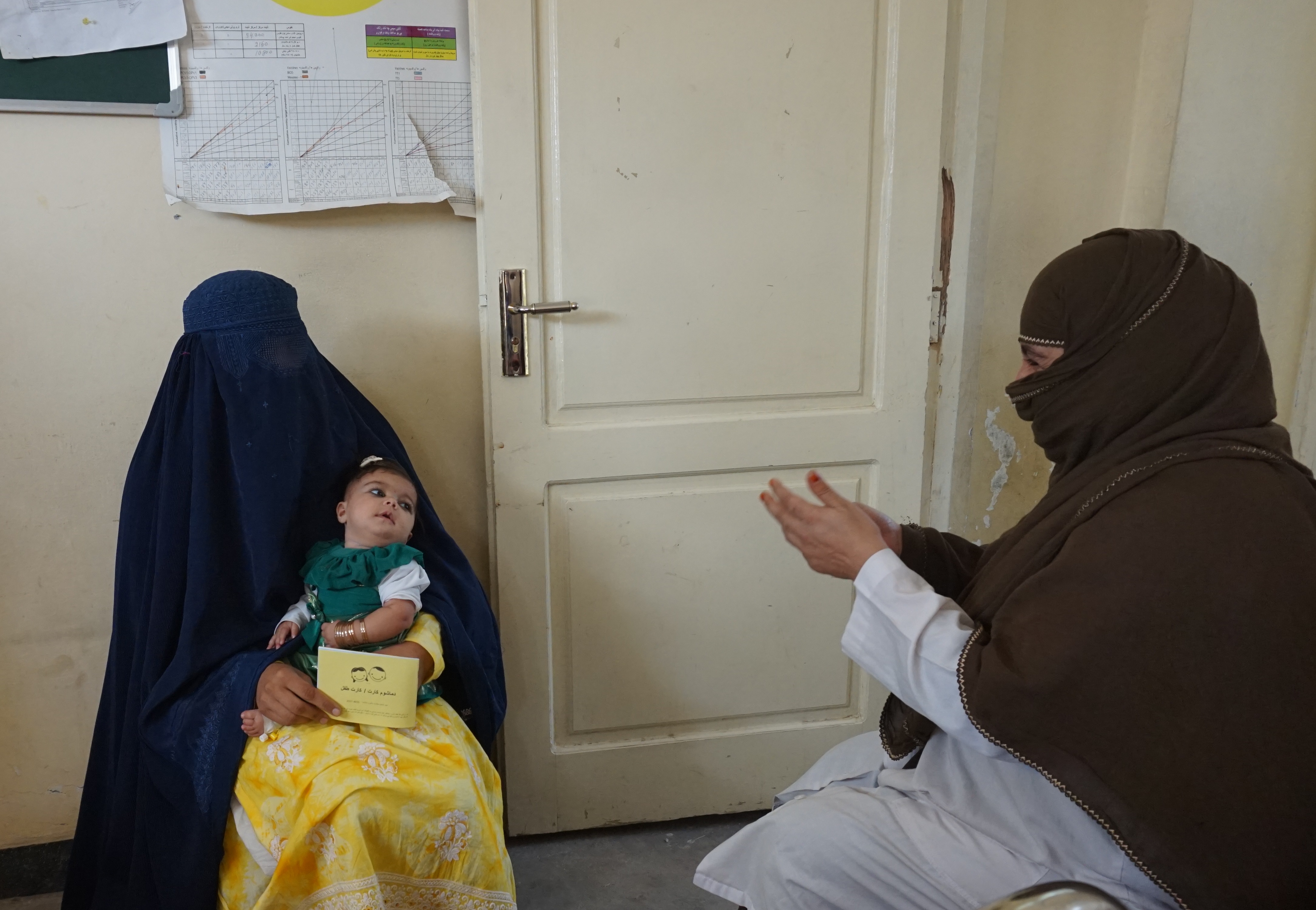MyChild Solution Evaluated in Afghanistan

In 2015 Shifo Foundation (Shifo), Swedish Committee for Afghanistan (SCA) and the Ministry of Public Health (MoPH) in Afghanistan started a joint collaboration to strengthen child health services in Afghanistan under the framework of Every Child Counts — MyChild Solution in Afghanistan Programme. The programme was supported by IKEA Foundation. One of the main objectives of the collaboration was to strengthen the quality of data and its utilisation in the Expanded Programme in Immunisation, as data and information are fundamental to inform decisions and assist key stakeholders to allocate appropriate resources to continuously improve the quality of health services.
MyChild Solution was implemented in Mehterlam District of Laghman Province by Swedish Committee for Afghanistan and is operational in all 141 health service delivery points including fixed, outreach and mobile clinics. To date, using MyChild Solution, more than 40,000 children have been registered, more than 8,000 children are fully vaccinated and 10,000 children are being followed up with SMS messages reminding parents about the due date for vaccination.
To evaluate the success of Every Child Counts — MyChild Solution in Afghanistan Programme and to ensure achieving high quality data through implementation of MyChild Solution based on Smart Paper Technology, Swedish Committee for Afghanistan (SCA), Shifo Foundation (Shifo) and Ministry of Public Health (MoPH) conducted two evaluations to inform evidence-based decisions on the next steps of the programme.
In June 2018, external evaluation reports assessing 1) data quality, operational costs and efficiency gains; and 2) transfer of work processes to the existing health system, were completed. This article presents the summary of the findings.
Based on the findings derived from these external evaluations, Shifo, SCA and MoPH will work together to further scale and evaluate the intervention on a wider level to inform decision making for the national roll-out of the programme.
The assessment showed high quality data generated from MyChild Solution for all the metrics, namely: completeness (100%), timeliness (91,66%), internal consistency (100%) and external consistency (99,4%). Moreover, the ratio of data recording error was low in the study ranging from 0.05% to 1.7% for two selected data recording errors.
Results also showed that around 64% to 96% time could be reduced in different stages of data administration during and after the immunisation sessions with MyChild Solution compared to current HMIS.
When adding the value of the reduced administration time, the total national cost of MyChild Card was 611,974 USD, MyChild Forms 316,436 USD and the existing HMIS 873,253 USD. Over a five-year period, MyChild Forms would save around 2,938,543 USD and MyChild Card 1,378,875 USD compared to the existing HMIS system. When the administration time is removed from the analysis, MyChild Card (501,622 USD) and MyChild Forms (206,126 USD) are both more expensive than HMIS forms (195,581 USD). However, it is noteworthy that, when administration time is not included in the analysis, MyChild Forms are only 5% more expensive compared with the HMIS costs
The second report showed the results of the transfer of work processes to the existing health system. The results indicate that 95% of the processes essential to the management of MyChild Solution have been transferred to the local stakeholders in Mehterlam District. In most cases, these processes have been transferred in a way that is both accurate and sustainable. The remaining processes are planned to be fully transferred to Mehterlam by the end of 2018.
You can read more about here…